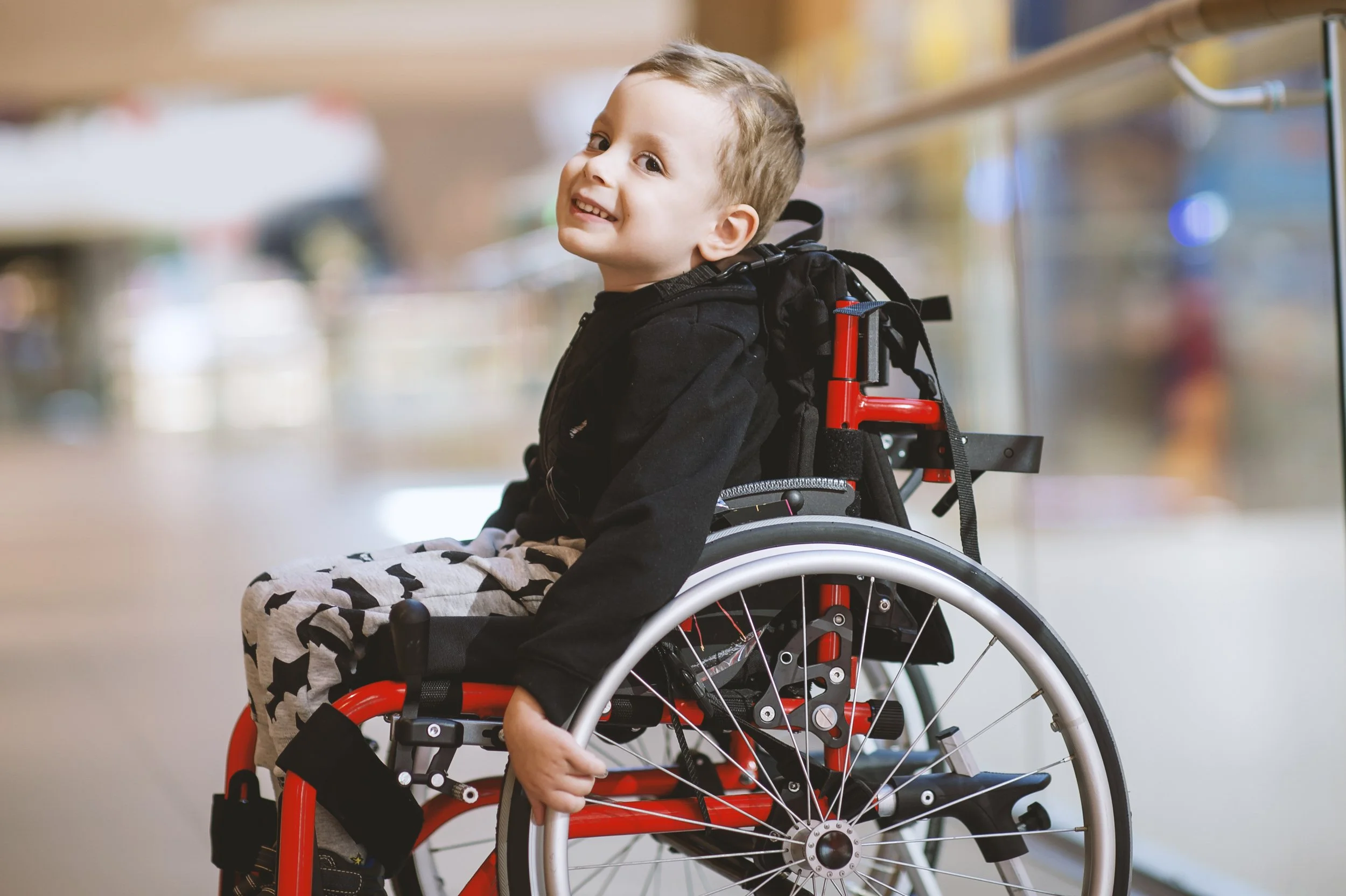Disability Physiotherapy
Supporting Children with Disabilities and Complex Needs
Whether your child has been recently diagnosed or has ongoing needs, we are here to support your family with experienced and reliable care, practical strategies, and a warm, child-friendly approach. We work with children with neurological, genetic and acquired disabilities and work with families and wider support teams to achieve incredible results.
What is Disability Physiotherapy?
Our physiotherapists work with children with complex needs to maintain their joint range of motion, develop muscle strength, promote sensory maturity and support overall development. Some children do not yet have a diagnosis when they come to see us and require specific assessments to support their diagnostic journey. At our clinic we specifically assess children for Cerebral Palsy using the Hammersmith Infant Neurological Exam (HINE) and the General Movements (GMs) assessment. We work collaboratively with paediatricians, general practitioners and other allied health professionals to best support your child.
Specialised Physiotherapy for Children with Neurological, Genetic & Rare Conditions
We provide tailored physiotherapy for children with conditions such as cerebral palsy, spinal muscular atrophy, Duchenne muscular dystrophy, Down syndrome, epilepsy, bone disorders, acquired brain injury, and rare genetic diagnoses. Our care focuses on promoting safe movement, supporting gross motor development, slowing disease progression where possible, and enhancing participation in daily activities through evidence-based therapies—including hydrotherapy, strengthening, contracture management, rehabilitation, and ongoing family support.
What expect in an
Continence physiotherapy assessment?
Your child’s first appointment begins with a relaxed conversation to understand their continence concerns, history, and goals, followed by a tailored assessment that may include posture, strength, and bladder or bowel tracking. From there, we create an individualized treatment plan and collaborate with your GP or specialists—referring to other providers when needed—to ensure comprehensive, coordinated care.
1. Initial appointment
We start with a chat! We talk about your child’s development to date, any relevant medical history, your goals, what past treatment has worked well or not well, who else is in your medical team and allied health team – we like to know any relevant information so we can best support you.
2. Thorough assessment
We will assess how your child is currently moving, if they require any mobility aids – we will look at how these are fitted and ensure they are providing optimal support. We will also likely look at range of motion of different joints, we may look at muscle tone and strength..
3. Develop a treatment plan
Once we have completed an assessment, we will make a thorough treatment plan that works towards your goals. We want to ensure that we are providing as much (or as little) support as your child needs. We may trial different treatment modalities initially until we find what is going to provide best support – this might include stretching, strengthening, taping, casting, equipment prescription, intensive therapy, hydrotherapy, and more!
4. We collaborate
We like to link in with your GP, specialist and wider allied health team to coordinate our treatment approach. We want the best outcome for your child which requires everyone on the same page.
5. Referral to other therapists
We may need to refer your child to a different service such as to a speech therapist or to an occupational therapist to ensure we are working holistically to support your child.
Questions, Answered with Care
Managing appointments for a child with a disability can feel overwhelming, but you’re not alone. Explore our FAQs to learn what physiotherapy involves, who it can help, what sessions look like, and how we support families every step of the way.
-
Please bring any relevant medical summaries or letters and any mobility aids your child requires.
-
You don’t require a referral to see us – you can book online or call the clinic to speak with our reception team.
-
We do work with children who are NDIS funded. To access our service we require children to be self-managed or plan managed.
With the recent funding cuts to the NDIS, we really recommend that families are self-managed if able.
-
We require 4 weeks’ notice to write NDIS reports as they do take 2-3 hours on average (sometimes more, sometimes less).
-
Our initial appointments are around 1 hour and follow up appointments are around 45 minutes.
-
Our therapists need to see your child at an initial appointment to make a recommendation on what treatment plan they think will be most successful moving forward. We’ve found that children who have come to us from other clinics sometimes need more or less therapy than they were previously receiving or may require more land-based vs hydrotherapy than they were previously receiving. We don’t book initial appointments unless we have capacity to see your child ongoing.
-
We do offer hydrotherapy; however, we need to first assess your child in the clinic to see if we believe this is indicated. We usually recommend hydrotherapy if there is a cardiovascular component to a diagnosis.
Have questions? Go to our FAQs
Help Starts Here!
If you're seeking care for your child's physical development and well-being, we're here to help. We are committed to providing compassionate and effective treatment tailored to your child's unique needs. Whether your child is experiencing difficulties with mobility, balance, coordination, or other physical challenges, we're here to support them on their journey toward improved strength, function, and independence.
Contact us today to schedule an appointment and take the first step toward unlocking your child's full potential.

